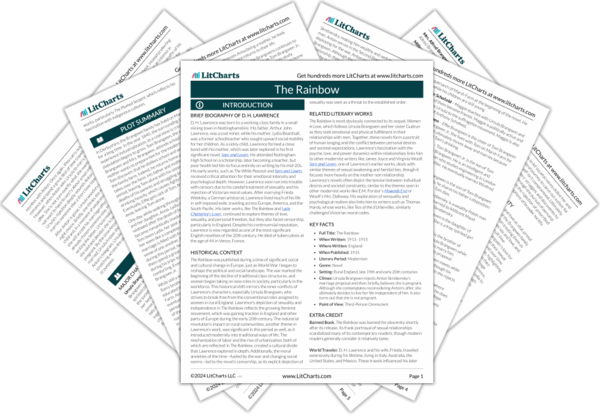Lydia's distinction between the two marriages suggests that love, at its core, is shaped by the individual’s personal development. When she tells Ursula that it is in her nature for a man to love her, Lydia taps into the theme of gender roles in society, suggesting that women are inherently lovable but cautioning Ursula to find a lover that values her for who she is, rather than what she can offer. This advice encapsulates the novel’s broader exploration of identity within relationships, where true love must acknowledge the individual rather than impose expectations or roles.
